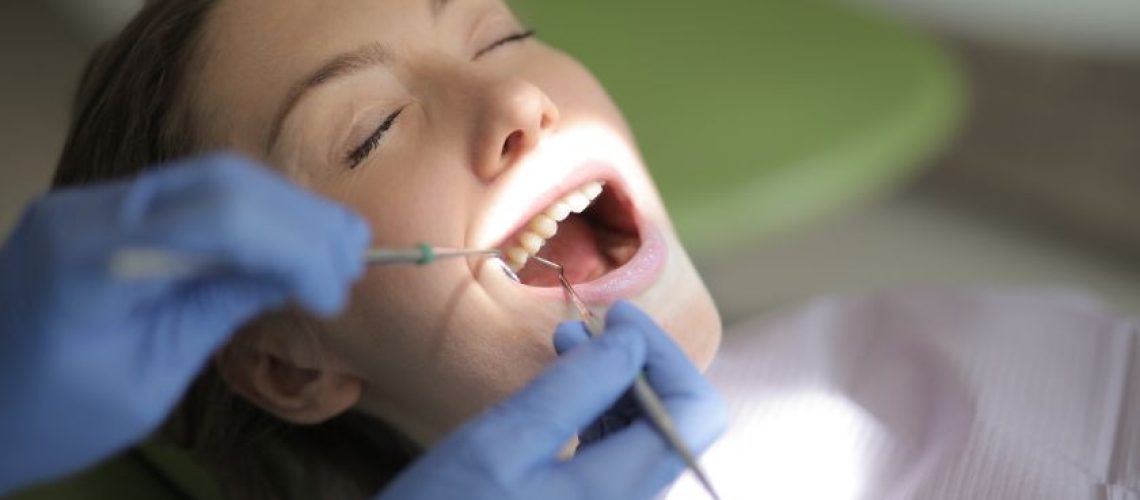Welcome to our blog post on Understanding Cavities: Causes, Symptoms, and Prevention! As a general dentistry expert, I know how important it is to maintain good oral health. One of the most common dental problems that people face is cavities. These tiny holes in your teeth can be painful and lead to more serious dental issues if left untreated. In this article, we’ll explore what causes cavities, the signs and symptoms you should look out for, how they are diagnosed by dentists, as well as tips on preventing cavities from forming in the first place. So grab a cup of tea or coffee and let’s dive into everything about cavities!
What are cavities?
Cavities, also known as dental caries are the tiny holes that form in your teeth. They can develop on any surface of a tooth and can range from very small to quite large. Cavities are one of the most common dental problems affecting people of all ages.
The process of cavity formation begins when food particles and bacteria combine to produce acids that attack tooth enamel, causing it to break down. This deterioration leads to cavities forming within the enamel layer, which then gradually progresses into deeper layers of the tooth over time.
If left untreated, cavities can lead to more serious oral health issues such as gum disease or even tooth loss. It is essential to practice good oral hygiene regularly and visit your dentist for regular check-ups so they can detect and treat any cavities before they become too severe.
Causes of cavities
Cavities, also known as dental caries, are caused by a combination of factors. The most significant cause is the buildup of plaque on teeth surfaces. Plaque is formed when bacteria in your mouth interact with sugars from food and drinks, creating an acidic environment that erodes tooth enamel.
Another cause of cavities is poor oral hygiene practices such as irregular brushing and flossing or not using fluoride-containing toothpaste. These habits can lead to the accumulation of food particles on tooth surfaces and eventually promote bacterial growth.
Furthermore, frequent snacking between meals results in continuous acid production by bacteria which creates a favorable environment for cavity formation. Sugary foods like candy and soda are particularly damaging to our teeth since they provide easily fermentable carbohydrates that contribute to the development of cavities.
Signs and Symptoms of Cavities
Cavities are a common dental problem that can cause pain and discomfort. Knowing the symptoms of cavities can help you seek treatment early on before they become more serious.
One of the first signs of a cavity is tooth sensitivity. You may experience discomfort or pain when eating hot, cold, sweet, or acidic foods and drinks. Another symptom is visible holes or pits in your teeth, which can be seen by your dentist during an exam.
If left untreated, cavities can progress to more severe symptoms such as persistent toothache and swelling around the affected area. In some cases, you may also notice bad breath or a foul taste in your mouth due to bacteria buildup from the decayed tooth.
Regular dental check-ups with your general dentistry practitioner are crucial for detecting cavities early on and preventing them from causing further damage to your oral health.
Diagnosing cavities
Diagnosing cavities is an essential part of maintaining good oral health. Your dentist can detect cavities during a routine dental exam, as well as through X-rays and other imaging tests.
During the exam, your dentist will use a small mirror to examine each tooth’s surface for signs of decay or damage. They may also use a special tool called an explorer to check for soft spots on teeth’ surfaces that indicate early-stage cavities.
If your dentist suspects you have a cavity, they may order X-rays to determine how deeply the cavity has penetrated into the tooth structure. Early detection of cavities can prevent more extensive dental work in the future, so it’s important to schedule regular dental checkups and cleanings with your general dentistry provider.
Preventing cavities
Maintaining a healthy oral hygiene routine is the key to preventing cavities. Brushing your teeth twice a day with fluoride toothpaste, flossing daily, and using mouthwash can help remove plaque and protect your teeth from decay.
Eating a balanced diet that is low in sugar and processed foods can also lower your risk of developing cavities. Limiting snacks between meals and opting for water instead of sugary drinks can promote healthy teeth.
Regular visits to the dentist every six months for cleanings and checkups are crucial in detecting any potential issues before they worsen. Your dentist may also recommend additional preventive measures such as sealants or fluoride treatments to further protect your teeth from decay.
Treatment options for cavities
Treatment options for cavities vary depending on the severity of the decay. If caught early, a simple filling may be all that is needed to restore the tooth. However, if left untreated and allowed to progress, more advanced treatments such as root canals or even extractions may be necessary.
If you suspect you have a cavity or are experiencing any dental issues, it’s important to see your dentist right away. Regular check-ups and cleanings can help prevent cavities from forming in the first place.
Understanding what causes cavities and how to prevent them is key in maintaining good oral health. By following a proper dental hygiene routine, seeking regular professional care, and being mindful of your diet choices, you can greatly reduce your risk of developing cavities and other dental problems. Remember: prevention is always better than treatment!

